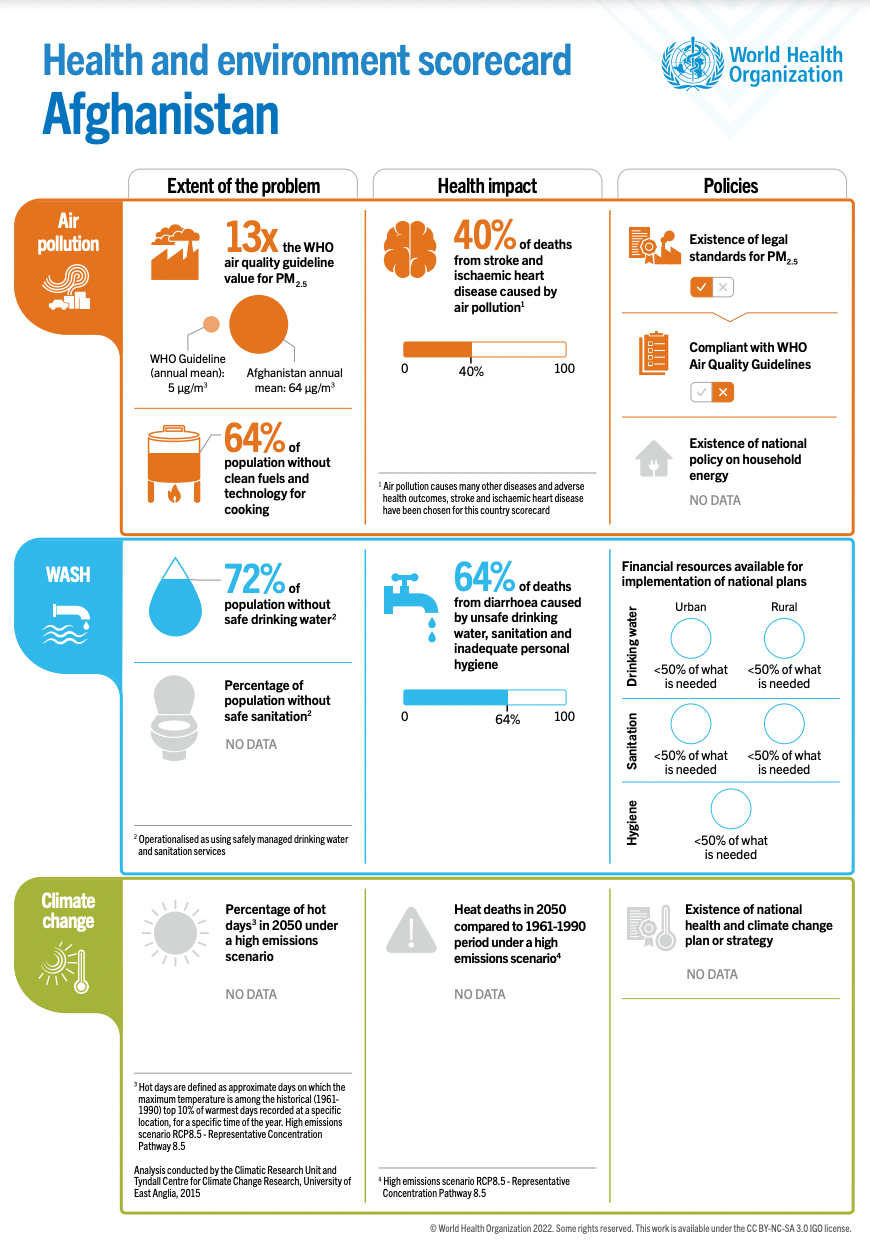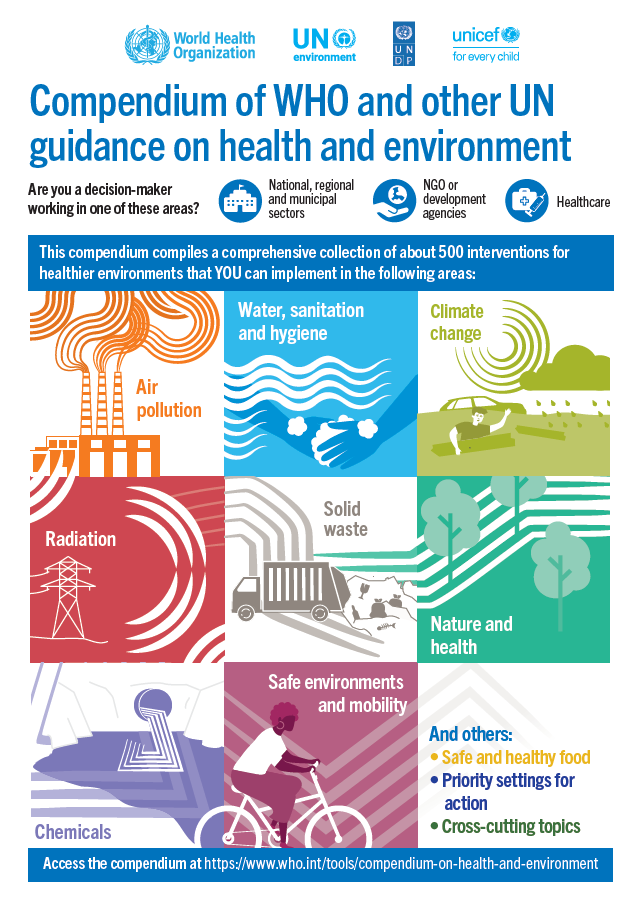
Scale up action on environment, climate change and health in countries
Systematic approach and summary of key interventions
Introduction
This web page outlines essential steps and key materials to implement or accelerate change at country level in a systematic way, cutting across all environment and health areas.
Bold action is needed to address the triple planetary crisis of pollution, climate change and biodiversity loss. This three-step process provides guidance on successful interventions on environment, climate change and health.

1- Data-based situation assessment
and setting priority areas for action in environment, climate change and health
The Scorecards on Health and Environment present a compilation of key data on exposures, associated health impacts and the policy situation in your country.
Assessing the country’s current situation in environment, climate change and health helps to identify key priority areas for action and achieve tangible health and environmental impacts.
Additional data
- On environment, climate change and health, including health for the SDGs 3.9 on Mortality from pollution, 6 on Water, sanitation, hygiene, 7.1.2 on Household energy, and 11.6.2 on Air pollution.
- Monitoring site on environment, climate change and health
- Tool for further assessment of policies and actions in countries: Checklist for rapid assessment of policies and actions in environment, climate change and health
- Summary for WHO representatives
- The assessments are to be followed by the selection of priority areas by concerned stakeholders in the country.
Aide-mémoires:
Aide-mémoires are briefings on topics in environment, climate change and health, including key actions for health protection, background, and links to more in-depth guidance to support action in countries:
- Access to safe drinking water
- Ambient air quality
- Chemical safety
- Climate change
- Electrification of health-care facilities
- Eliminate lead exposure
- Human right to a clean, healthy and sustainable environment
- Ionizing radiation
- Indoor air quality
- Planetary environmental crisis
- Radiation protection from electromagnetic fields
- Safe, climate-resilient and environmentally sustainable health care facilities
- Sanitation, wastewater and recreational water
- Ultraviolet radiation
2- Selection of key interventions
and definition of targets
The Compendium of WHO and other UN guidance on health and environment provides a menu of 500 interventions to be prioritized and tailored according to the country’s needs. Over 200 of those interventions also contribute to achieving Universal Health Coverage. The selection of key interventions should be accompanied by the setting of time-bound targets.
More guidance:
3- Implementation and monitoring
to be designed according to identified priority areas
The Repository of systematic reviews on interventions in environment, climate change and health highlights the state of evidence on interventions in major ECH topics that improve health outcomes or reduce harmful exposures. This database may also assist in identifying knowledge gaps in ECH interventions in those areas.
Thematic materials
Publications
This is the 2024 update of the Compendium of WHO and other UN guidance on health and environment. The Compendium is a comprehensive collection of available...
Compendium of WHO and other UN guidance on health and environment: version with International Classification...
In this version of the compendium, each guidance is coded using the International Classification of Health Interventions (ICHI).The compendium provides...
This updated version of the compendium provides a systematic compilation of published guidance from WHO and other UN organizations on health and environment....
WHO global air quality guidelines: particulate matter (PM2.5 and PM10), ozone, nitrogen dioxide, sulfur...
Clean air is fundamental to health. Compared to 15 years ago, when the previous edition of these guidelines was published, there is now a much stronger...
Compendium of WHO and other UN guidance on health and environment
This compendium provides a systematic compilation of published guidance from WHO and other UN organizations on health and environment. Guidance on policies...
Healthy environments for healthier populations: Why do they matter, and what can we do?
Globally, 23% of all deaths could be prevented through healthier environments – and scaled-up action is required. This document presents an overview...
WHO Guidelines for indoor air quality: Household fuel combustion
In 2014, WHO issued the first-ever health-based guidelines on clean fuels and technologies for household cooking, heating and lighting. These guidelines...








